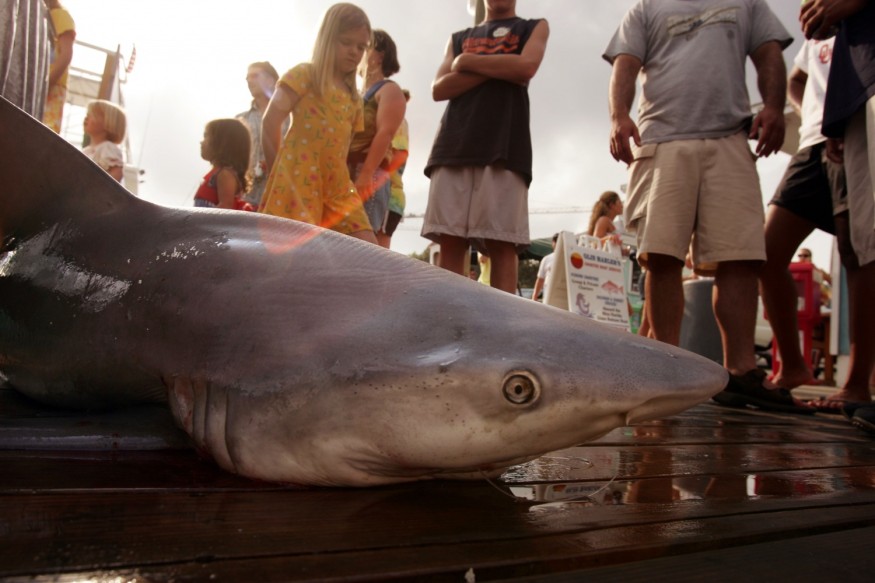Shark Attack: Pregnant Woman in Florida Pulls Husband to Safety

A pregnant woman did not hesitate to jump into the waters and pull her husband to safety following a shark attack in the Florida Keys on Sunday morning, September 20.
According to the Monroe County Sheriff's Office, Margot Dukes-Eddy was with her husband, Andrew Eddy, and her family at Sombrero Reef, wherein they were planning to snorkel the shark attack happened.
Eddy, who is a native of Atlanta, had just slipped into the water when a large shark latched onto his shoulder.
In his report, Deputy Christopher Aguanno wrote that Dukes had seen the dorsal fin of the shark first before blood filled the water.
Without thinking twice, Dukes jumped into the water and pulled Eddy into the safety of the private boat that they had used.
Fortunately for Dukes, she suffered no injury during the shark attack, but Eddy's shark bite, however, was severe.
They raced back to the beach in Marathon, where medics were already waiting for them.
Eddy was immediately flown to the Ryder Trauma Center of the Jackson Memorial Hospital in Miami.
From there, nothing was further learned of Eddy's condition as a spokeswoman said that the family has requested privacy.
The deputy's report also stated that there were already several snorkelers from other boats in the area when the shark attack happened.
They had told the deputies that they had seen a bull shark, which they estimated to be about 9 feet (2.7 meters) long in the area that morning.
According to the retired director of the University of Florida's International Shark Attack File (ISAF), George Burgess, he agrees that it is possible that what had attacked Eddy was a bull shark.
There have been 17 unprovoked shark bites in Monroe County since 1882 as per the ISAF record.
In northern Florida, Volusia County is dubbed as the shark bite capital of the world after recording 312 incidents.
Burgess said that there are lesser shark bites in the Keys because it does not have the waves that attract the crowd of swimmers and surfers to the beaches in Volusia County.
In the Keys, people do activities that are less likely to attract sharks like snorkeling, hanging around sand bars, and scuba diving.
Despite a decrease in Florida's shark attacks, the sunshine state still had the highest number of unprovoked shark attacks last year.
In 2019, there were 64 unprovoked attacks recorded. Of the 64, 21 happened in Florida, half of the total shark attacks recorded in the entire U.S., which was 41.
And nine of those 21 attacks happened in Volusia County, where the New Smyrna Beach is located. Three of those nine shark attacks happened on the same day.
However, that 21 shark attacks pose a marked drop from its most recent five-year annual average at 32 incidents.
According to ISAF, the 64 unprovoked shark attacks in 2019 were also lower than the five-year average of 82 incidences.
Check these out:
Meghan Markle, Prince Harry's Call to Vote Video Irks Trump
Kobe's Widow Sues LA County Sheriff Department
Distribution of Additional $300 Unemployment Checks Ends in 10 States
Subscribe to Latin Post!
Sign up for our free newsletter for the Latest coverage!
© 2026 Latin Post. All rights reserved. Do not reproduce without permission.















